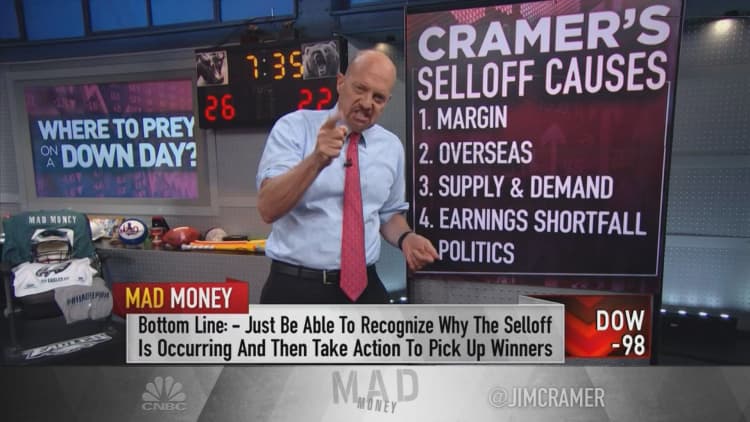For investors on the hunt for a safe place to stow some of their money, one old-school option might be a good fit.
The Series I savings bond, issued by the U.S. Treasury since 1998, comes with a fixed rate of return, plus variable interest that's based on the rate of inflation. And while these bonds come with holding periods, and investors could earn more elsewhere, the option offers some guarantees that may appeal to skittish investors.
"The returns are by no means something to get excited about," said certified financial planner Peter Palion, founder and president at Master Plan Advisory in East Meadow, New York.
"But the good thing is that you redeem an I Bond directly with the U.S. Treasury," he said. "There is no market adjustment of any kind."
In contrast to U.S. Treasury bonds that trade in the securities market, the value of the Series I bond is guaranteed to not drop in value. And a variable interest rate that's based on inflation aims to ensure your money maintains its spending power. Moreover, that rate is guaranteed to never drop below zero if deflation were to hit the U.S.
"I like the inflation protection," said Leon LaBrecque, a CFP and chief growth officer at Sequoia Financial Group in Troy, Michigan.
Right now, I Bonds issued from May through October 2019 are returning 1.9% — that combines a fixed rate of 0.5% and a variable inflation-based rate of 1.4%. That piece of the formula adjusts every six months (in May and November) to reflect new inflation numbers.

You can purchase these bonds electronically from the Treasury Department. The lowest denomination is $25, with penny increments available above that up to a maximum of $10,000 annually. (You can use your tax refund to purchase paper versions of up to $5,000 annually).
These bonds earn interest for 30 years, unless you cash them in before then. Rather than paying you income along the way, the interest accrues and comes back to you when you when you unload the bond.
You can redeem one any time after holding it for one year, although you'll give up three months of interest if you cash it in before five years. After that, there is no interest penalty.
More from Personal Finance:
Looking to retire someplace safe? Look north, and abroad
Seniors should avoid this mistake as the Fed lowers rates
This state is home to the best cities for renters
While the interest earned on I bonds is taxable at the federal level, it's free from state and local taxes. (However, it could be subject to state estate or inheritance taxes if it is bequeathed to someone else.)
Additionally, if your income is below certain IRS limits and you use the proceeds to pay qualified higher-education expenses for yourself, your spouse or dependents, you can exclude the interest (or a portion of it) from federal taxes. For 2019, the tax break begins phasing out for modified adjusted gross income of $81,100 for single filers and $121,600 for married couples filing joint returns.
Despite the safety of these bonds, it's also important to remember their limitations, advisors say. While your only outlay is the face value of the bond — i.e., there is no upfront or ongoing fee as with some investments — you'd also be barely beating inflation, and your money would be inaccessible for a while.
"Ultimately the way you should make any investment decision is to weigh your risk tolerance, and also the purpose for investment," Palion said.
"If someone needs the money within a year, this wouldn't be right because of the holding period," he said. "And if someone needs it within five years, they'd have to go into knowing they'd give up that last three months of interest."


